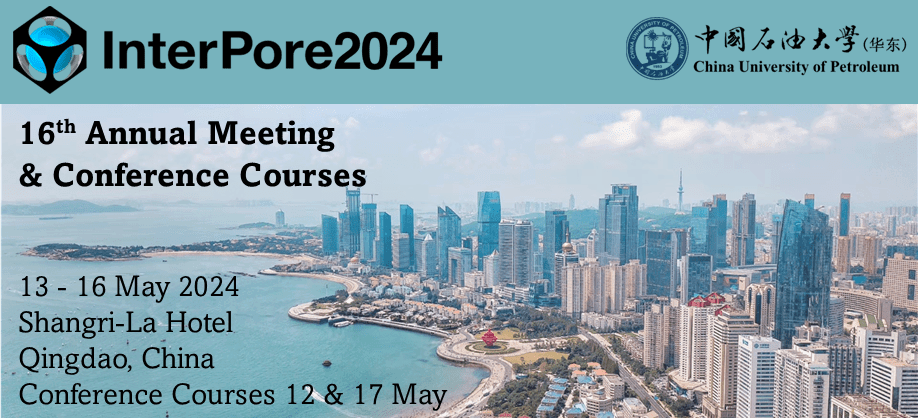Speaker
Description
Underground H2 storage is arguably considered one of the promising techniques to achieve net-zero emissions goals. The storage of H2 in geological formations is influenced by a complex function of the physicochemical, petrophysical, and geo-mechanical characteristics of the H2/brine/rock system. This results in the existence of different trapping mechanisms (e.g., residual and dissolution trapping), which will lead to the loss of H2 within the formation. Therefore, it is important to understand the trapping of H2 at different scales to provide a better understanding of the H2 withdrawal efficiency.
To this end, contact angles and interfacial tensions of the H2/brine/sandstone at different temperatures and salinities were collected for the pore network modeling to investigate the pore-scale H2 trapping behaviors. The obtained results were then fitted using the Land trapping model. Subsequently, these trapping behaviors and different H2/brine properties, including density, viscosity, and H2 solubility under different conditions, were then considered in the field-scale simulations. One single injection and production well and four annual injection-withdrawal cycles were considered. The results indicate that a higher temperature leads to less residual trapping in both pore-scale and reservoir scale. The higher temperature and higher salinity conditions are more favorable for H2 production (i.e., a higher H2 recovery factor). In addition, the H2 dissolution trapping is also influenced by the temperature and salinity, which contribute to a maximum of ~5% H2 loss. Furthermore, the H2 plume migrations are also influenced by different temperature/salinity conditions.
| Country | United Arab Emirates |
|---|---|
| Acceptance of the Terms & Conditions | Click here to agree |




.jpg)
